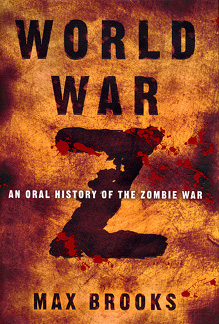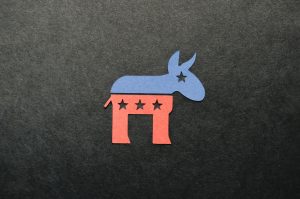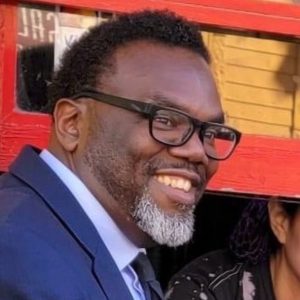
America’s obsession with zombies and the idea of a zombie apocalypse has been on a rise since George Romero’s 1968 “Night of the Living Dead”. With the popularity of Robert Kirkman’s Walking Dead graphic novels and its subsequent television adaption and books like Zombie Survival Guide and World War Z by Max Brooks, the fascination with zombies may not just be about the zombies themselves.
Over the past 50 years, zombies have developed into a staple in a long line of horror movie culture figures. Just as vampires have crossed over to modern culture with the popularity of “Buffy the Vampire Slayer,” “Twilight” and “True Blood”, the rotting-fleshed walkers have shown they also are here to stay.
Dr. Brendan Riley is an English professor at Columbia College Chicago and teaches a class entitled Zombies in Popular Media, which has been in existence since 2007. According to the course description on Columbia’s website, it is “a course exploring the history, cultural significance and horrifying circumstances of zombies as they appear in film, television, books, etc”.
The idea of no self control seems to be what drives fans of the epidemic.
“Zombies, as a horror figure, are particularly interesting and exciting because at our core one of the things that is very scary is the idea of not being in control of ourselves anymore,” said Riley. “And I think Zombies represent that menace: the fear that we would lose control of ourselves to either animal instinct or being without sense and without knowing what’s going on.”
Riley asserts that there is a difference between the fascinations of zombies versus the fascination with the zombie apocalypse.
“The zombie apocalypse is frightening, not only because of the fear of the zombies, but also the fear of the breakdown of the social order…the need to survive and the need to protect yourself is a particularly frightening ordeal.”
The modern-day zombie, as we know it, dates back to the 1960s.
In 1968, George Romero directed an independent film that recreated the way people view zombies. “Night of the Living Dead” redefined the idea of zombies and is responsible for the depiction of them in today’s media. Prior to Romero, zombies were depicted as living people enslaved under the power of voodoo and were often based in the Caribbean. Romero was the first to introduce the idea of “the living dead”; a reanimated corpse with a desire for human flesh.
“‘Night of the Living Dead’ really set the stage for zombies to be what they are today. Before 1960, there really weren’t zombie movies that had zombies like the ones we think of today,” said Riley. “Romero’s movie created the modern zombie.”
In addition to “Night of the Living Dead”, Romero’s film “Dawn of the Dead,” release in 1978, created what we know today as the “zombie apocalypse.”
“‘Dawn of the Dead’, that movie really kind of established what large scale zombie movies would look like: this idea of zombie apocalypse, the idea of a zombie virus, the survivalist fantasy, all of these things came into play in ‘Dawn of the Dead’,” said Riley.
America’s obsession with zombies isn’t just based on old cult classics, but it has made its way to modern media and culture.
“The Walking Dead” premiered on AMC in 2010 with an average of 5.24 million viewers, according to New York Times. A show based on the graphic novels by Robert Kirkman, it’s about a group of humans and their survival during the zombie apocalypse.
“The show has developed into something much more than about the zombies themselves,” said Marcus Watkins, an avid fan of the series.
Marcus Watkins and Sydney Hendrix are friends from Harrisburg, Penn. and they have been fans of the series since its premiere.
“The development between characters, the need for survival and the mystery of what will happen next is what drives the show,” said Sydney Hendrix.
Added Riley: “It challenges us to think how we would deal with these issues. At the core of the show is that conflict…What happens to your humanity when you do inhumane things? It’s more about how people act in the face of adversity than about the zombies; the zombies aren’t really important in “The Walking Dead” anymore.”
Hendrix and Watkins both believe the mystery of the unknown is what drives the popularity of zombies in American culture and media. People tend to fear, but also obsess with, what they do not know. It raises the question: What would you do?












Be First to Comment